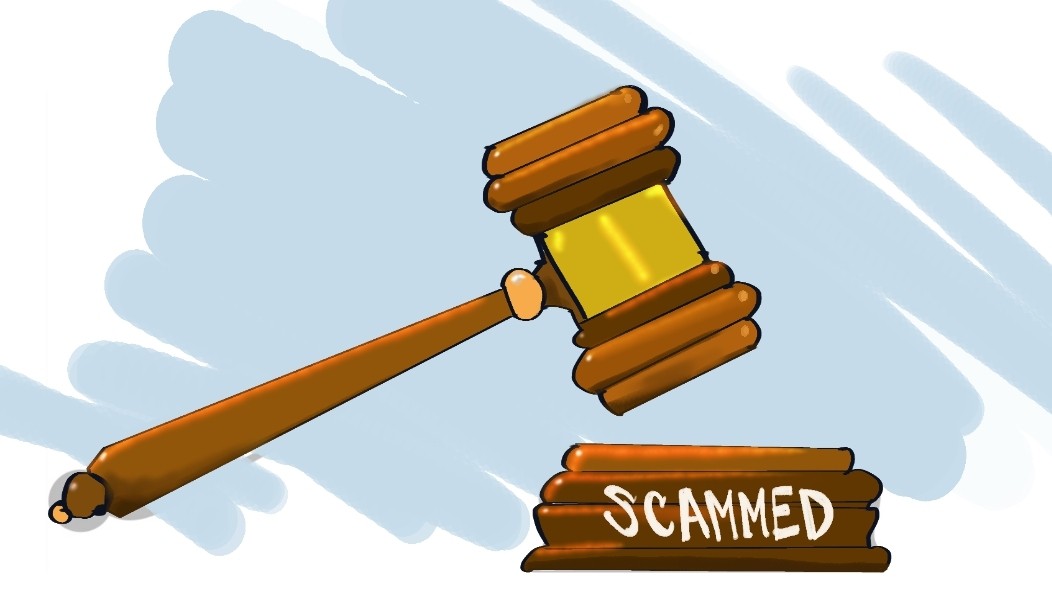Fourteen years ago, an Illinois lawyer named Robert Hirsch saw an email from “Julie Kobayashi.” It seemed Julie was in a bit of a bind and a hurry. She needed Hirsch’s help with her divorce. Julie didn’t appear for an interview, and apparently, Hirsch didn’t bother with any checks on “Julie’s” credibility.
Hirsch was wired $298,500. “Kobayashi” instructed Hirsch to deposit the CitiBank cashier check into his IOLTA account (client trust account). “You can keep $29,000, just wire the remainder to an account in Japan.” Kobayashi likely told him that the money was part of her “settlement.” Maybe Hirsch had visions of a yacht on Lake Michigan. He accepted the client and her story and the check.
Banks try to protect even the dumbest people — even lawyers too gullible to check the provenance of a client he never met or to demand that the “client” deposit the cashier’s check into her account and wire a retainer.
Hirsch deposited the check on a Friday.
Hirsch’s bank (“Fifth Bank”) asked him in the wire instructions if the payee was someone he had met online. He answered, “No.”
The following Monday, Fifth Bank wired $269,500 to the bank in Japan. By that evening, CitiBank informed Fifth Bank that the check was counterfeit and dishonored the check. Fifth Bank sued Hirsch to get their money back. Hirsch sued CitiBank claiming that CitiBank should have dishonored the check on Saturday evening (or the next business day, according to Hirsch). State and federal law define “business days” as Monday through Friday.
The federal court judge dismissed Hirsch’s claim. What bothers me isn’t that Hirsch got greedy and lost; it’s that the “midnight rule” for dishonoring checks is crystal clear, yet the court didn’t sanction Hirsch for filing what seems to be a no-win lawsuit.
Hirsch failed his Kobayashi Maru test.
Internet schemes are becoming more frequent and apparently scams are targeting law firms. I get a daily dose of scam emails soliciting my representation. Sometimes, it is the uncreative and silly ones like a Ugandan princess with $10,000,000 US Dollars. I can keep 10 percent if I will just wire the remainder back to her London account.
Or the long con, with a solicitation for representation. “Can I send you the disputed contract? I will wire the settlement money and your retainer to you ASAP.
Although the California Bar is next to useless for my purposes, the Bar Journal reports that the scam hitting law firms and single practice lawyers is, apparently, pretty common.
In Santa Clara County, the district attorney was told by a local law firm about a prospective “client.” The client had a website, documents, and what seemed like a real dispute. A retainer was signed and returned. A $270,000 cashier’s check was sent. “Keep your retainer and a little extra, said the client and wire the rest back.” The law firm didn’t. It waited for the check to clear. The check was counterfeit.
I have little to no sympathy for lawyers like Hirsch. He could have waited for the check to clear (or not clear). One day is all he needed for the check to be denied. Having a bar card doesn't infer or confer being smart.
What is tragic? Elderly people who click on a “bank” link in an email, and the link turns out to be a scammer opening the door to their bank account. I told my mom, “Never, ever click on any link in an email.” She never did. I don’t have to worry about that now. Since my mom died, my dad cannot be scammed by an online predator. He never used a computer and still doesn’t.
I still have to remind him that no one in the family and no bank will ever ask him over the phone for money.
There isn’t a lower form of life than predators who target the elderly.













Join the conversation as a VIP Member